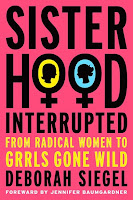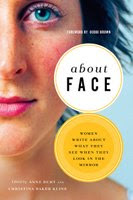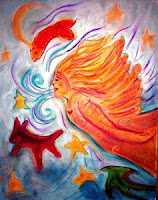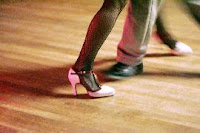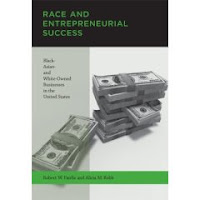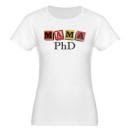 Academia is still in many ways a man’s world, and I’m thrilled to offer this post on a just-released anthology that constitutes a truly important contribution: Mama PhD: Women Write about Motherhood and Academic Life. A copy just reached me and it’s now available at stores.
Academia is still in many ways a man’s world, and I’m thrilled to offer this post on a just-released anthology that constitutes a truly important contribution: Mama PhD: Women Write about Motherhood and Academic Life. A copy just reached me and it’s now available at stores.
I’m WAY impressed with these ladies’ marketing savvy. Check out the book blog, the blog at Inside Higher Ed, the excerpt, and the shop (complete with Mama, PhD t-shirts–“let the world know you’ve got it going on, body and brain”–hats, bags, mugs, beer steins and even license plate holders)–and take notes!
Elrena Evans and Caroline Grant, author of Literary Mama’s popular Mama at the Movies column, are the masterminds behind the project, and for those in the Bay Area, you can catch Caroline reading with a number of other Literary Mama editors and columnists at Book Passage in Corte Madera on Saturday, August 9th at 1pm. There’s a review by Bob Drago over at Activistas, and for a sneak peak, here’s a quick overview of the different sections:
Part I: The Conversation
This section contains essays representing the variety of choices women have to make as they enter academia, and the struggles and losses encountered as a result of each choice. Selected essays include topics such as:
~ choosing to have children and an academic career, in a range of fashions
~ choosing not to have children in favor of an academic career
~ choosing to delay having children in favor of an academic career
Part II: That Mommy Thing
In this section, women write about pursuing both academic careers and motherhood. Essays feature women who have experienced:
~ children before and during graduate school or the dissertation process
~ children during job searches or new appointments
~ children and the tenure track process
Part III: Recovering Academic
This section features essays from women who are redefining themselves and their careers after a period within the ivory tower. Essays talk about women who have:
~ left the academy after landing a tenure-track job
~ left the academy after achieving tenure
~ moved from teaching positions to administrative work or independent scholarship
Part IV: Momifesto
Having delved into the realms of motherhood in, out, and on the periphery of the academy, this section offers hope for the possibility of a different future, as contributors envision:
~ changes toward family-friendly university settings
~ changes in the economic structure of the academy to benefit mothers
~ changes in the tenure structure that would benefit mothers
Big kudos to Rutgers University Press for taking this project on. For another great contribution to the worklife debate as it hits academics, see the National Clearinghouse on Academic Worklife, created by the Center for the Education of Women at my alma mater the University of Michigan. The clearinghouse is a repository of articles, research & policy reports, policies, demographics, links, and more.
 Thanks to those of you who wrote in with links for blogs from women’s orgs and research centers–there were bunches I didn’t know about! Like the National Women’s Law Center’s blog, Womenstake, which launched in May 2007. It’s one of my faves, and I’m giving it this month’s Organizational Blog of the Month Award from GWP (I just made that up — you like?!).
Thanks to those of you who wrote in with links for blogs from women’s orgs and research centers–there were bunches I didn’t know about! Like the National Women’s Law Center’s blog, Womenstake, which launched in May 2007. It’s one of my faves, and I’m giving it this month’s Organizational Blog of the Month Award from GWP (I just made that up — you like?!).

